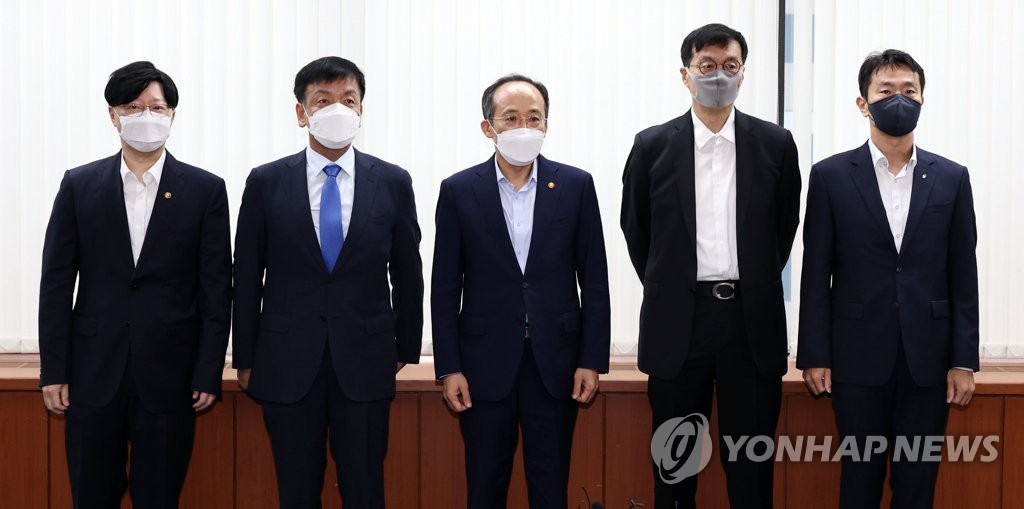ID :
634821
Mon, 07/04/2022 - 04:30
Auther :
Shortlink :
http://m.oananews.org//node/634821
The shortlink copeid
Preemptive measures in store to tackle risks from rising rates: chief policymakers

SEOUL, July 4 (Yonhap) -- South Korea's finance minister, the central bank chief and financial regulators said Monday they will step up policy coordination to minimize fallout from rising interest rates at home and abroad.
In a meeting presided over by Finance Minister Choo Kyung-ho, they discussed economic and financial situations amid heightened external economic uncertainty from the prolonged war between Russia and Ukraine, and the Federal Reserve's aggressive monetary policy tightening.
The meeting brought together Bank of Korea Gov. Rhee Chang-yong; Lee Bok-hyun, chief of the Financial Supervisory Service; Kim So-young, vice chair of the Financial Services Commission; and Choi Sang-mok, senior presidential secretary for economic affairs.
They shared the view that they should make joint efforts to deal with economic risks, as the current "complex" economic crisis facing Asia's fourth-largest economy is expected to prolong for a considerable period of time.
"The participants agreed to preemptively respond to the situations in a bid to prevent macroeconomic risk factors from materializing amid rising interest rates at home and abroad," the finance ministry said in a statement.
Central banks around the world have kicked off monetary policy tightening drives in a bid to curb inflation caused by high energy costs and a rebound in demand from the pandemic.
Last month, the Fed raised its key rate by 0.75 percentage point, the sharpest hike since 1994, and signaled it could raise the rate by a similar magnitude in July.
The BOK is also widely expected to raise the key interest rate at its policy meeting set for July 13. Some experts forecast the BOK may conduct an unprecedented "big-step" rate increase of 50 basis points to tame inflation.
The BOK has hiked the policy rate five times -- all by a quarter percentage point at a time -- since August last year to 1.75 percent.
A rate hike is meant to slow inflation, but it could increase debt-servicing burdens and slow down an economic expansion.
South Korea's household credit hit an all-time high of 1,859.4 trillion won (US$1.4 trillion) as of end-March.
Market volatility has recently amplified as demand for safer assets, such as the U.S. dollar, increased amid the Fed's aggressive rate hikes and concerns about a global recession.
The South Korean currency fell below the 1,300-won level against the dollar for the first time in nearly 13 years on June 23. The won has slid more than 8 percent against the greenback so far this year.
The won's sharp fall is feared to put additional upward pressure on inflation as it hikes import prices.
In May, the country's consumer prices jumped 5.4 percent on-year, the fastest rise in almost 14 years and a pickup from a 4.8 percent spike in April.
Minister Choo earlier warned the growth of consumer prices could rise to the 6 percent range between June and August. The statistics agency plans to release the June inflation data Tuesday.
sooyeon@yna.co.kr
(END)





